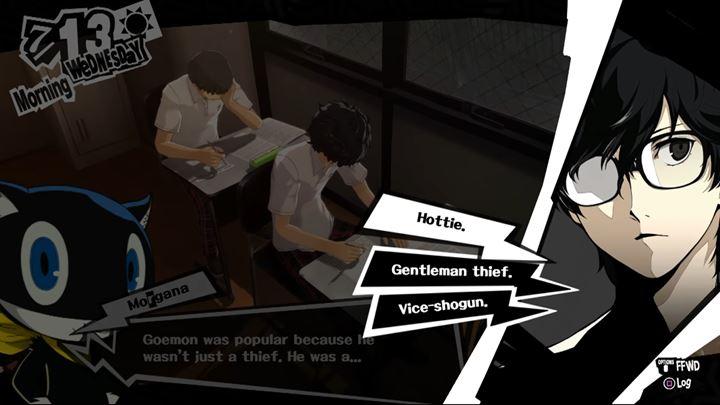
#Persona 5 name of the other famous novel sherlock holmes free#
This causes their targets to realise their evil actions and take steps to reform, but is it right to do so by taking a person’s free will? And are the “Phantom Thieves” always doing it for the right reasons? There are moments where they seem to be more interested in the loot and fame, even if their actions ultimately contribute to a greater good. They are, after all, adopting the role of thieves and “stealing” the free will of those they target. One of the recurring themes that comes out of Persona 5 is a discussion around the morality of what the protagonists are doing. Persona 5 is not a detective fiction game, of course, but it is heavily inspired by the genre, and does one particularly interesting (and quite subversive) thing with your expectations of the genre. That is to say that Ranpo is best known for the same kind of detective fiction that we see in the Sherlock Holmes novels, or the likes of Murder in the Rue Morgue. It has become quite the property, too, with an enhanced remake and narrative sequel, each with additional characters and narratives, as well as rhythm games, an anime, and more, but regardless of which version you're playing or experiencing, there's a particular core influence on Persona 5 that warrants a deeper level of discussion, because it suggests and highlights a layer of subversion which will make you question a lot of what goes on within the game.Įdogawa Ranpo (1894-1965) is to Japan what Sir Arthur Conan Doyle or Edgar Allan Poe is to western literature (indeed, Edogawa Ranpo is a pen-name playfully derived from Poe). With luxurious production values, rich characters, and a superb sense of style, it’s hardly surprising that people would commit to the game’s 100-odd hour run-time.

Persona 5 is one of the bigger name JRPGs of the past generation.


 0 kommentar(er)
0 kommentar(er)
